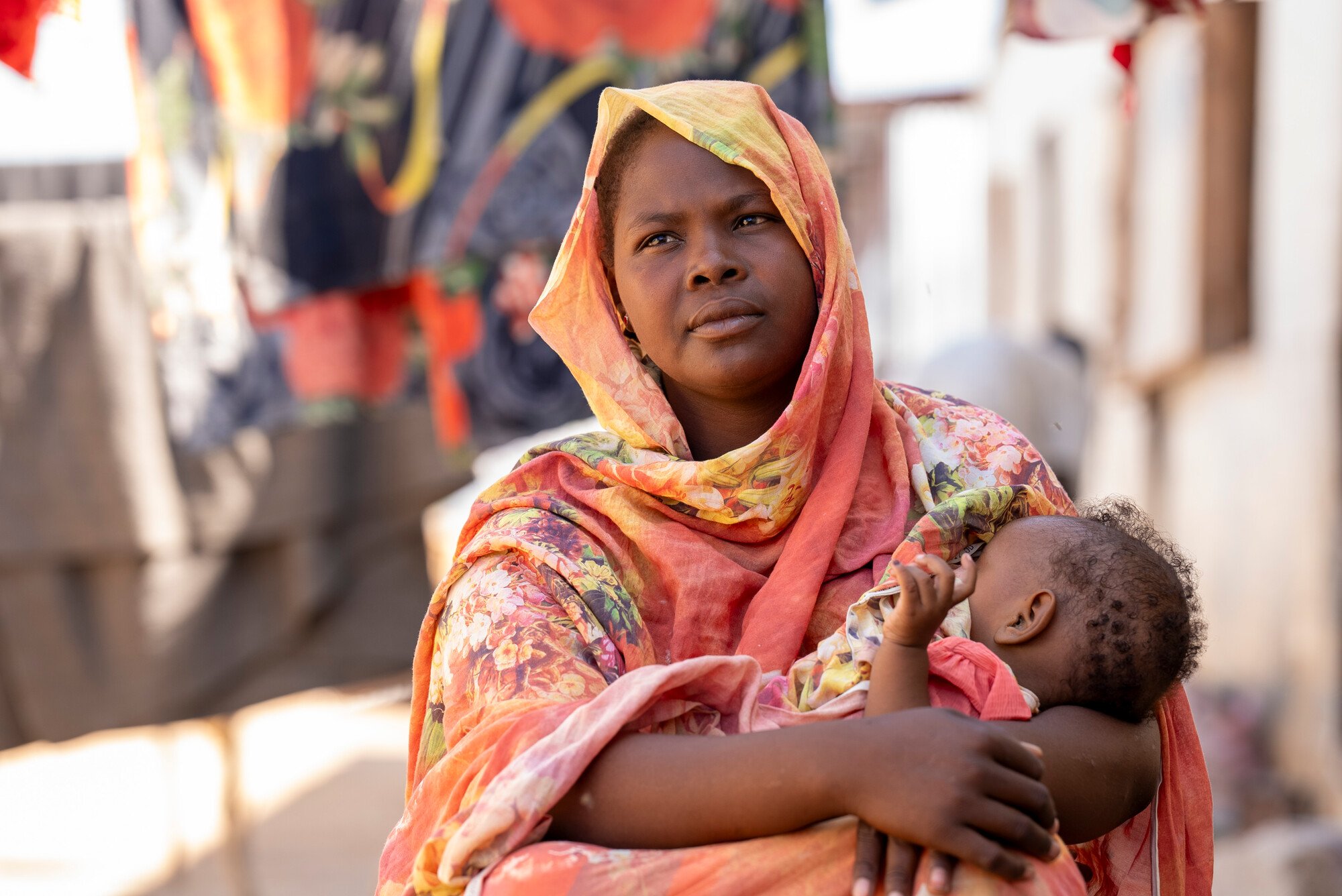There’s still time to minimize the impacts of future climate disasters if rich polluters make important changes.
The richest countries and the richest people in the world are the biggest polluters, but they’re also the ones who have the resources and power to end the era of fossil fuels and build a safer future for the present and next generation. As of right now they have not done enough to fight climate change. Therefore, as a result, the lowest-emitting, vulnerable communities are facing the most devastating consequences, such as deadly droughts, floods, and forest fires.
That is why this fall, with the help of youth climate activists, Oxfam is working with the younger generation to demand that the Biden administration and other world leaders make the richest polluters pay for a fair transition away from fossil fuels.
Here’s how:
Marching for Climate Justice
During Climate Week NYC, a group of youth activists organized a march to demand an end to fossil fuels. Oxfam joined in the protest, alongside 75,000 other advocates from all over the world. The march started at Central Park and ended at the United Nations Headquarters where international heads of state were preparing to discuss sustainability goals at the U.N. General Assembly.

The march was filled with expressive artwork, an inspiring drumline, and impassioned participants of all ages. It culminated with powerful speeches made by changemakers like Congresswoman Alexandria Ocasio-Cortez, who told The Guardian that the march had become something too big for her to ignore.
Oxfam invited 26-year-old climate activist Marinel Ubaldo to march alongside our cohort. After witnessing horrific climate disasters, like typhoon Haiyan, while growing up in the Philippines, she became a fierce advocate for climate action. In 2022, after working with other local activists for seven years, she helped convince the Philippines Commission on Human Rights (CHR) to investigate 47 fossil fuel companies.
“There are just 100...corporations fueling...climate change, 47 of them exist in the Philippines. So we sued them.” - Marinel Ubaldo
The CHR found that these companies breached the people’s rights to life, food, water, sanitation, adequate housing, and self-determination. As a result, this landmark case set a precedent that connects climate polluters to human rights violations. It has since inspired similar litigation in other areas of the world.
By marching together, Oxfam’s goal was to send a message that we stand in solidarity with Ubaldo and everyone who is facing the worst effects of climate change, but receiving minimal support from the world’s highest emitters. We made it known that they cannot be silenced, that their voices matter, and that the younger generation is here to fight for their future.
Advancing the Conversation with Climate Leaders
A few days after the march, Oxfam hosted a reception where Ubaldo attended as the guest of honor. This gave Oxfam partners and climate leaders the opportunity to hear directly from someone whose country and community have been severely affected by climate change.

Oxfam also partnered with the People’s Vaccine Alliance to co-sponsor a panel at the U.N. General Assembly on the future of health rights. The panel discussed how the world’s response to future climate crises could be similar to its response to COVID-19 — the highest emitting countries may not act on their promises of support to the lowest emitting countries that are suffering the worst effects of climate change. The event was moderated by award-winning journalist Angela Oketch, and panelists included experts from Global Justice Now, 1DaySooner Africa, People’s Vaccine Alliance, and Oxfam.
Delivering Our Message at COP28
As the 2023 United Nations Climate Change Conference (COP28) approaches, and world leaders once again plan to meet to discuss the future of climate action, we continue to work with youth activists who have endured the worst of climate change. Oxfam will host the following four youth climate activists at COP28 for the entire two weeks:

- Hilda Nakabuye is the founder of Fridays for Future Uganda, the largest youth movement in East Africa. Through her work, she raises awareness about issues such as climate change, gender justice, and racial justice. She also mobilizes students and young people through community events like clean up sessions in Lake Victoria.
- Lagi Seru is a humanitarian response policy expert in the Pacific, the co-founder of the Alliance for Future Generations, and works for the Pacific Island Climate Action Network. He also has a background in youth development and human rights.
- Marinel Ubaldo became a climate activist after experiencing the devastation of Typhoon Haiyan in 2013. Since then, she has organized the first climate strike in the Philippines, testified against fossil fuel companies, and helped amplify the link between climate change and human rights.
- Pavel Martiarena is an advocate and photographer who fights against extractive industries in the Amazon. He is the co-founder of Generación Verde, an Oxfam partner organization, and works to uplift indigenous youth in Peru.
While attending the conference, Oxfam and the activists will participate in lobby meetings with negotiators and key decision-makers, media interviews to share the importance of ending the era of fossil fuels, and side events on climate activism and intergenerational justice. This will all culminate in the delivery of a petition, signed by our supporters, demanding that world leaders make the highest polluting individuals and countries take responsibility for the climate crisis and help those who are least responsible yet most heavily affected.
Join these activists by signing our petition to tell world leaders that rich polluters must pay their fair share to fund a just, clean-energy transition, finally putting an end to the era of fossil fuels.




